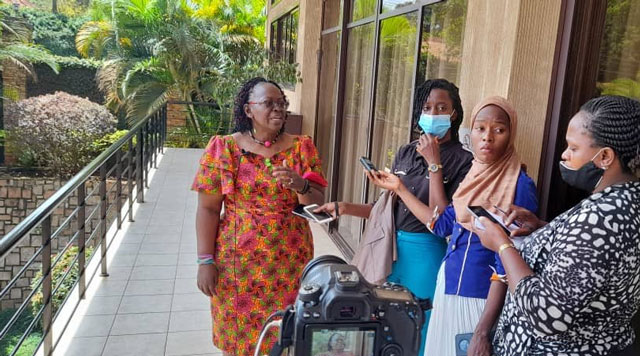
Makerere, Uganda | THE INDEPENDENT | A new study by the Economic Policy Research Center (EPRC) has found notable shifts where men are increasingly taking on care work that was traditionally assigned to women. This is against the fact that previous data has stipulated that women and girls spend twice as much time as men and boys in unpaid care work.
Prof. Paul Bakuluki of Makerere University’s Department of Social Work and Social Administration who was one of the investigators said men had started unpaid care work such as preparing food, fetching water and cleaning whereas their female counterparts are embracing non-traditional roles such as paying for food and meeting costs of health care.
While there’s this shift norm, fellow researcher Dr Grace Bantebya Kyomuhendo says rural areas are still stuck with old norms with many men they interacted with revealing fear of being bashed by fellow men as a reason as to why they stayed away from work associated with women.
In their formative study in which researchers are mapping social and gender norms associated with unpaid care work such that they can design more inclusive recommendations for government intervention, they interviewed family members, teachers and health workers in addition to the market and local government leaders in districts of Mbarara, Pallisa, Masindi and Mpigi.
Bakuluki says that the concept of unpaid care work sounded new, out of place or even awkward as some of the respondents said it wasn’t easy for them to relate to payment for care for loved ones and family.
This they say is a major hurdle towards the fulfillment of the government policy in the current National Development Plan III which seeks to expand women’s participation in the paid economy but remains silent on unpaid care work.
In terms of formal labour participation rate according to statistics by UBOS, males occupy 61.2% of the work against 44% for females.
Experts now say addressing the disproportionate burden of unpaid care work will free women from gainful employment.
Speaking at the study launch, Angella Nakafeero, the Commissioner in charge of women affairs in the Ministry of Gender, Labour and Social Development said that there is a need to challenge social norms, values and practices that result from the socialization process which burden women with unpaid care work.
Sheikh Muhammad Ali Waiswa, the 2nd Deputy Mufti of Uganda warned that researchers should go slowly when making recommendations to the government as well as making indigenous communities understand unpaid care work not to create conflict with already deep-rooted and progressive beliefs.
While this research is being conducted, Ritah Aciro a Women Rights Activist said they have already been working to change the mindset of couples especially with complaints that men tend to become violent when women are economical.
She says that have selected model families in the communities that are used to preach to their peers the benefit of sharing roles and leveraging on the good norms that already exist.
Researchers will now go into another phase where they will conduct a baseline study to verify the norms, identify gaps and figure out opportunities for intervention. The entire project that was launched in April will be conducted within three years after which they will come up with recommendations on how unpaid care can be rewarded both at home and at the workplace.
****
URN
 The Independent Uganda: You get the Truth we Pay the Price
The Independent Uganda: You get the Truth we Pay the Price



